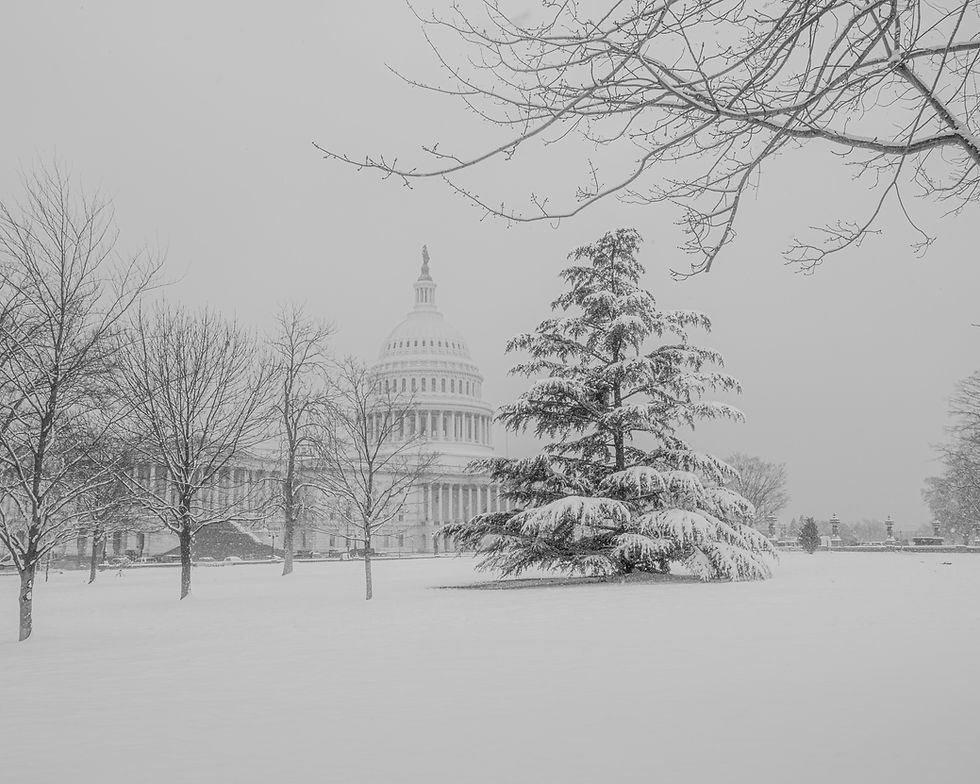Op-Ed Farm Bill Efforts Critical to Indian Country Agriculture Producers
- Feb 13, 2023
- 3 min read
By Chuck Hoskin Jr., Cherokee Nation Principal Chief
February 12, 2023
We all depend on farmers, ranchers and those who support them to bring food and other essential agricultural products to our tables and homes. At the Cherokee Nation, we are especially mindful that without food sovereignty, all other aspects of our sovereignty will be at risk.

That is why we focus on strengthening the agriculture industry on our reservation and giving Cherokees plenty of opportunities to thrive as food producers.
The Farm Bill is the most significant legislation supporting agriculture and food systems in the United States, and it must be renewed every five years. Each renewal creates an opportunity to improve the USDA’s extensive programming for Indian Country. The 2018 Farm Bill, which dedicated $428 billion for farm and food program support, was a historic milestone for Indian Country. It brought greater investment in Native agricultural production, rural infrastructure, economic development and conservation. It also safeguarded vitally important nutrition assistance programs on which many Native Americans depend.
Now the time for the next renewal is here. I was recently in Washington, D.C., as part of the Native Farm Bill Coalition, which is a nationwide initiative to advance policies that benefit all tribal citizens. As the largest federally recognized Indian tribe in the United States with more than 450,000 citizens and a 7,000-square-mile reservation, Cherokee Nation is a key part of this coalition.
Native people are the original stewards of the land and water on this continent. From time immemorial, we carefully built agriculture and food systems to sustain our people and our environment. Our traditional food practices were carefully cultivated to nourish Native families and communities. When these are damaged or destroyed, our health and our communities suffer as well.
That is why we are working so hard to expand opportunities in the 2023 Farm Bill renewal. There are so many farming and food programs this bill supports that could change the livelihood of Native people. Nationwide, we are making progress to restore tribal and Native food systems. However, many tribal governments still rely on federal food programs for their people.
In fall 2022, Cherokee Nation and the Native Farm Bill Coalition hosted a roundtable discussion with Cherokee Nation tribal leadership and local farmers and ranchers to discuss priorities we would like to see changed or added to the 2023 Farm Bill.
Additionally, last year Cherokee Nation proudly launched the 1839 Cherokee Meat Co., the first meat processing plant operated by Cherokee Nation within the 14-county reservation. This facility provides access to a nutritious protein source for Cherokee families. It also gives livestock producers in the Cherokee Nation a much-needed service to prepare their animals for the market. The Cherokee Nation has also continued to grow its cattle and bison herds, with the eventual plan to process some of the animals so that we can put fresh meat into the tribal programs our citizens use.
We have advocated for the new Farm Bill to include investing more in the Meat and Poultry Processing Expansion Program, which has been critical to bring projects like the 1839 Meat Co. from idea to reality.
In working with ranchers in the Cherokee Nation, we are intimately familiar with their struggles in times of drought. Northeast Oklahoma has experienced record heat waves and brutal weather conditions in recent years, stressing livestock and pasture lands on the reservation. We set up and operated USDA drought assistance efforts and a hay assistance program for local farmers and ranchers last year. We know these programs helped keep Cherokee agriculture producers from losing everything in the drought.
One of the priorities Cherokee Nation would like to see is changes to the Livestock Forage Program that gives tribes flexibility to use their own drought monitor and shorten the wait time from eight weeks to two weeks. The U.S. Drought Monitor is insufficient by itself, and Cherokee Nation is uniquely situated to evaluate the needs of Cherokee producers.
We also support expanding tribal self-determination in the Food Distribution Program on Indian Reservations. Food distribution is critical to our people, even more so during the pandemic. In fiscal year 2022, Cherokee Nation food distribution served 68,313 individuals within 36,949 households. Recently, the tribe opened the doors of its eighth center for food distribution on the reservation. The Vinita location allows us to bring even more fresh and healthy food into Cherokee homes. We know that when tribes have the funding and authority to fully operate these programs, they are more efficient and effective at helping our citizens.
The unique needs of Indian Country and Native agriculture producers cannot be overlooked when the Farm Bill is renewed. We remain vigilant in advocating for strong Native-related provisions in the bill. Along with our partners from the Native Farm Bill Coalition, Cherokee Nation is a powerful voice for the agriculture needs of our people.



Comments